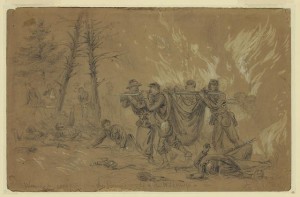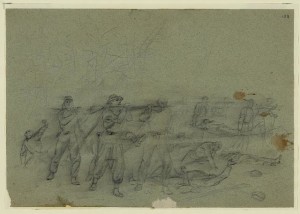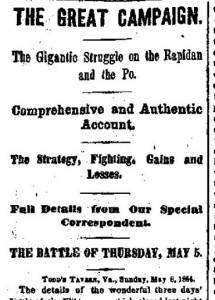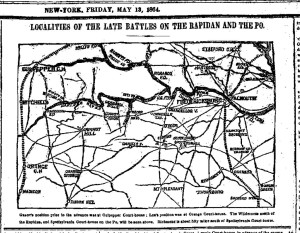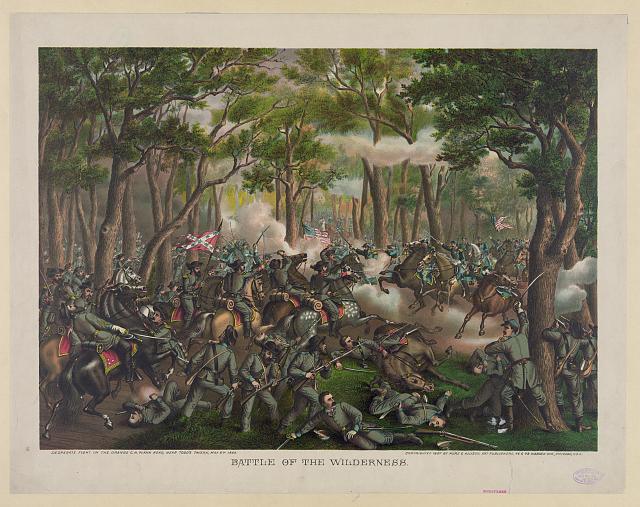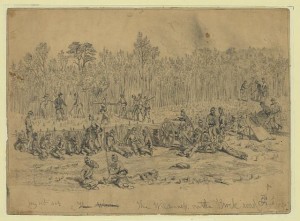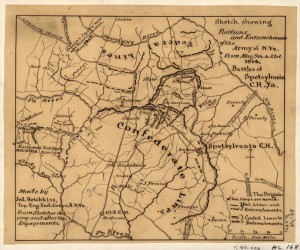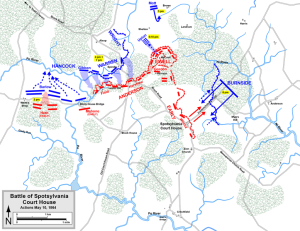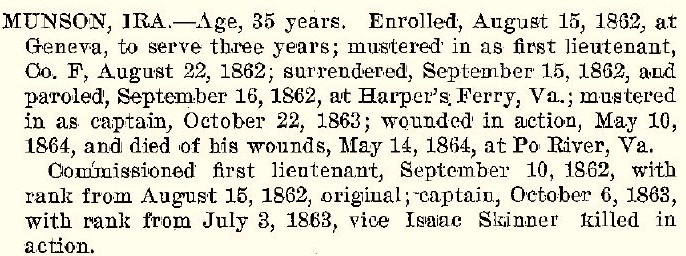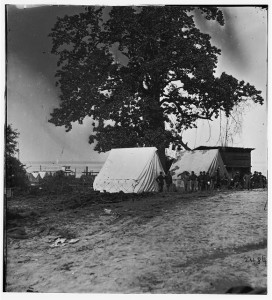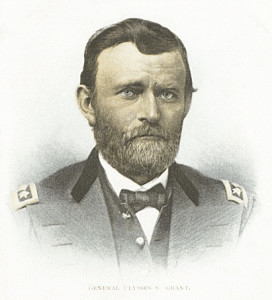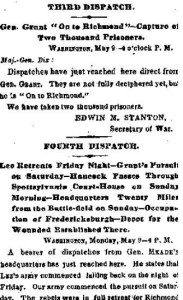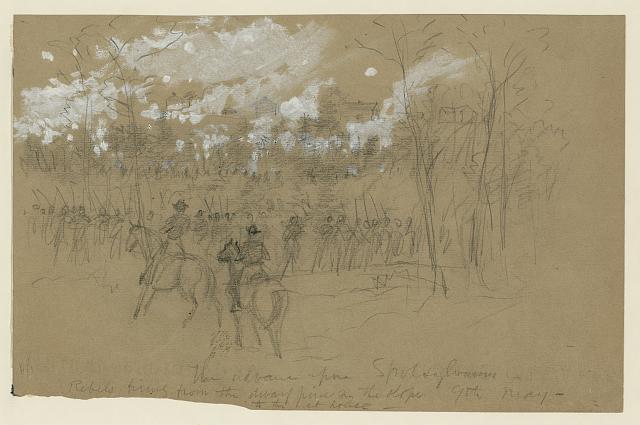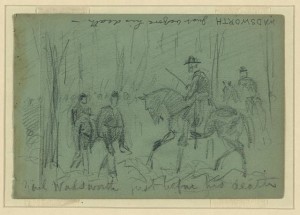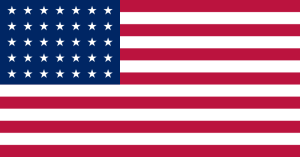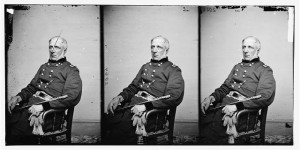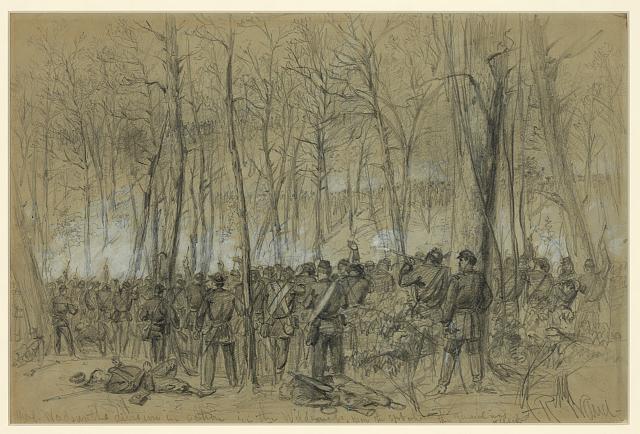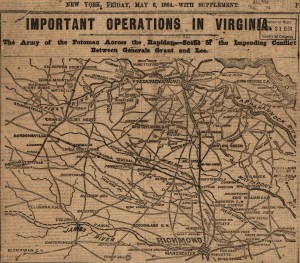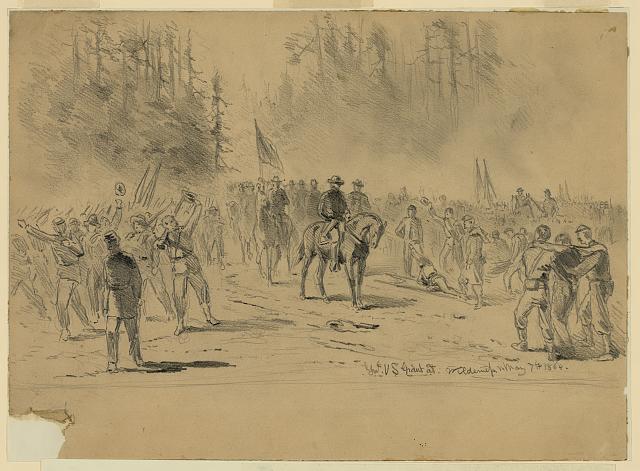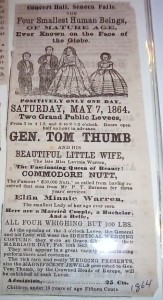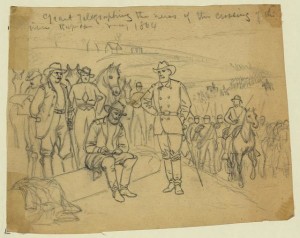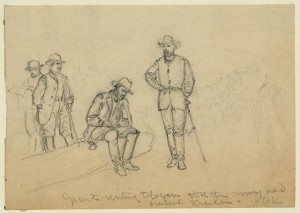Seneca Falls newspapers during the war seem to have been weeklies. Here’s a recap of the first week of the Overland campaign. The New-York Times seemed almost euphoric as the great battles commenced; this Democrat paper took a more negative and seemingly realistic view of the first week. But it also had time to digest the reports.
From a Seneca County, New York newspaper in May 1864:
The Campaign in Virginia.
DESPERATE FIGHTING AND UNPRECEDENTED SLAUGHTER.
During the past week the country has watched with breathless anxiety the progress of the fierce and bloody conflict raging between GRANT and LEE. The Army of the Potomac crossed the Rappahannock on Tuesday night of last week and on Thursday LEE with his forces marched out of his fortified position and gave us battle. And from that day up to the present time the struggle has been carried on with a fierceness and desperation unprecedented in the annals of warfare. For seven mortal days the battle has been waged with no positive advantage gained on either side. At times our forces were beaten back, defeated and overwhelmed; then again the tide of battle changed and the enemy was repulsed at all points. It is difficult to determine which side has been the most successful, though it is plainly evident that we have been the greatest sufferers. LEE has handled his army with consummate tact and ability while GRANT has repeatedly demonstrated his ability and tenacity of purpose. He seems to know no such word as fail, and the fearful slaughter of both officers and men clearly demonstrate his determination and stubbornness. Our loss in the battles of Sunday and Monday are placed by government telegrams at 25,000 to say nothing of the tens of thousands killed and wounded on Thursday, Friday and Saturday. The fighting on Tuesday near Spottsylvania Court House is represented to be the most desperate of the war. The Tribune’s correspondent writing from the battle field estimates our loss at 40,000 during the six days’ struggle. We believe this estimate will fall far short of the actual number killed, wounded and missing.
Gen. BUTLER is on the Peninsula with a large force working his way towards Richmond, but he does not seem to progress very rapidly towards the rebel capital.
The engagement on Tuesday was fought near the Po river, and it is asserted that in dogged stubbornness Waterloo and Solferino pale before the terific [sic] onslought [sic] of that day. The slaughter was unprecedented, and yet neither side seems to have gained any particular advantage over the other. On Wednesday the fighting was renewed but without any decisive result. – LEE means to contest every inch of ground to Richmond, and judging from the magnitude of the struggle, there will be but little left of GRANT’s army by the time it reaches the rebel capitol.
150 years ago today the Times had a more balanced headline as it got more details from its correspondent at the front.

